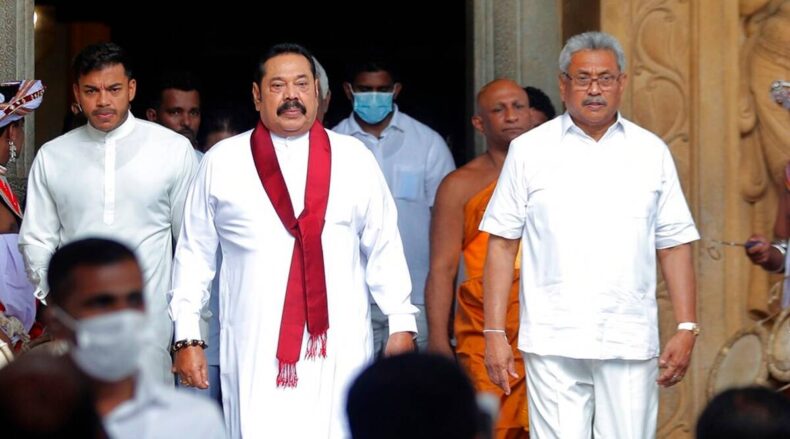Sri Lanka: After meeting with President Gotabaya Rajapaksa, MP Maithripala Sirisena stated that a national council would be formed to pick a new prime minister and Cabinet made up of members from all political parties in Parliament.
According to a prominent lawmaker, Sri Lanka’s President has agreed to replace his older brother as prime minister in a planned interim government to end a political gridlock created by the country’s worst economic crisis in decades.
After meeting with President Gotabaya Rajapaksa, MP Maithripala Sirisena stated that a national council would be formed to pick a new prime minister and Cabinet made up of members from all political parties in Parliament.
Before defecting with roughly 40 other MPs earlier this month, Sirisena, President before Rajapaksa, was a ruling party politician.
However, Prime Minister Mahinda Rajapaksa’s spokeswoman, Rohan Weliwita, said the President had not expressed any intention to dismiss the prime minister. If such an action is made, a decision will be publicised.
To stop the demonstrations, Rajapaksa reshuffled his Cabinet and proposed a unity government, but opposition parties refused to join a government led by the Rajapaksa brothers.
Both the President and the prime minister have kept their jobs. Still, three other Rajapaksa family members resigned from the Cabinet earlier this month in an apparent attempt to appease enraged demonstrators.
The opposition has been unable to assemble a majority and seize control of Parliament on its own due to its weakness and division.
What is happening in Sri Lanka?
Sri Lanka, a 22-million-strong island nation, is in the midst of an economic and political crisis, with demonstrators defying curfews and government officials resigning in masse.
Since the country’s 1948 independence, the most significant economic crisis has been fueling anger, with debilitating inflation driving up the cost of necessities.
Anger that had been festering for weeks finally spilt over, turning protests violent and causing chaos in the administration.
Due to widespread resignations by prominent ministers, the government’s entire Cabinet was officially disbanded on April 3.
The President’s nephew, who criticised the apparent social media block as something he would “never condone,” was among the 26 cabinet officials who resigned that weekend. Other high-ranking officials, including the governor of the national bank, left.
Faced with an administration in disarray, President Trump tried a reshuffle on Monday to appease the opposition. According to a presidential press release, four ministers were temporarily selected to administer the government, including a finance minister. In contrast, many others were given new jobs to keep the nation running “until a full cabinet is established.”
However, just one day later, the temporary finance minister resigned, claiming that he had only assumed the role owing to “multitudes of demands made” and that he understood that “new, proactive, and unusual initiatives needed to be done.”
On April 4, President Rajapaksa released a statement. He did not directly address the resignations but instead urged all parties to “work together for the welfare of all citizens and future generations.”
According to the statement, the current crisis is the outcome of several economic issues and global trends. “As one of Asia’s most democratic countries, solutions to this problem should be developed within a democratic framework.”, said Rajapaksa.
Published By: Ifa Zamzami













